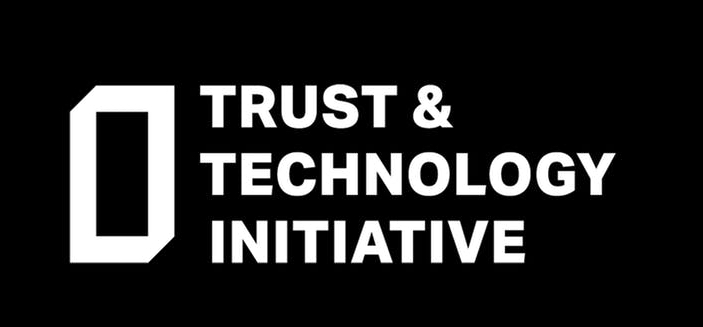Analyzing citizen data practices and how they challenge or work within dominant data regimes
The evolving relationship between citizens and data is a fundamental issue of our time. It impacts social formation, cohesion and civil rights, since data has become the basis for innumerable social, political and economic processes and decisions. While data can contribute to original social insights, at the same time numerous concerns have arisen, ranging from the pervasive tracking and surveillance, to ownership monopolies that restrict access and control for data analysis, and production. In order to address these concerns, people are engaging in alternative practices of production, ownership and data analysis. Through these practices they are attempting to challenge dominant data regimes by becoming active in the creation of alternative practices and infrastructures. New data democracies are emerging. The Citizen Data project seeks to understand them in order to identify changing formations of citizenship, and to build more effective relations to data.
Through the CamPo funding initiative, this pilot research project investigates citizen data practices as constituting a crucial movement toward greater public participation in social, technological, political issues. By attending to the social and cultural aspects of citizen data and environmental data we investigate how data is collected, to whom data is valuable, how citizens challenge data regimes, and how this informs practices of citizenship. By working across theoretical, practical and policy-oriented engagements, the project analyzes how citizens continuously produce data through their digital exchanges, as well as how citizens are changing existing dynamics by generating their own data by producing new public goods and informational commons.
Among the wide array of issues impacted by citizen data practices, the Citizen Data project will focus on citizen-generated environmental data. The project will focus on the mode of production and the consequent actions that those data might entail. By rigorously attend to the social and cultural aspects of environmental data it will ask: how is data collected, to whom is our data valuable, how do citizens challenge data regimes, and how does this inform our roles as citizens? By working across theoretical, practical and policy-oriented engagements, the project will investigate how citizens continuously produce data through their digital exchanges, as well as how citizens are changing existing dynamics by generating their own environ-mental data producing new public goods and informational commons.
Through engaging with these emerging practices, we will be guided by three key research questions:
- How are environmental data formed and generated about citizens? Whether through online tracking of energy use, the combining of environmental big data sets by technology companies, or the monitoring of environmental behaviours, citizens are the focal point for data collection and synthesis. We will focus on these dynamics, technologies and actors to analyse and document the consequences of citizens as objects of ongoing data collection and management.
- How are environmental data collected and contributed by citizens? Citizens are now active in generating new datasets that are mobilised as alternative forms of evidence. We will investigate how movements such as citizen science, crowd sourcing, co-creation and open data are changing the processes whereby expertise is constituted and evidence is formed, circulated and acted upon.
- How are environmental data dynamics constitutive of citizens and citizenship? New responsibilities are forming through citizens’ claims to data rights, like access, review and amend data about them. We will examine how people become political subjects by making demands about and engaging with data in relation to environmental problems. In this way, we will consider how both citizens and citizenship are not only implemented, but also come into being through new relations to data.
In order to address these foundational questions, we will attend to the ways in which people become citizens through the things they do and the claims they make with environmental data. Rather than attempt to define the citizen in advance as a fixed category, we will instead scrutinise how the shifting practices and politics of citizen data generate new significant public formations for the environment as the conjunction of political, democratic and technological issue.
The research will take a project-oriented approach in two interrelated project areas: Environmental Sensing and Climate Change. Rather than merely reflect upon data-related policies and projects, we will create a laboratory for citizen data that will be activated through practical workshops. In these workshops, we will engage in pilot creative and critical activities and experiments by working with a diverse range of actors and collaborators. In order to achieve transformational contributions to an emerging area of concern, we will address three key objectives:
- Assemble an international community of transdisciplinary researchers, practitioners, and technologists within the space of project workshops and events to critically interrogate and practically investigate citizen data in order to foster more democratic practices.
- Develop and exchange citizen data knowledge, techniques and practices through key project areas of data influence related to environmental sensing and climate change, in order to transform existing structures of expertise and digital exclusion.
- Examine and create new infrastructures for citizen data that enable wider engagements with issues of environmental and digital participation, from the creation of public platforms and citizen archives to alternative social networks and data practices.
Through pursuing these objectives, the project will undertake a pilot-scale investigation into new formations of citizen data, with the aim to develop a new research collaboration across the Department of Sociology at the University of Cambridge and the médialab at Sciences Po. Working at the intersection of humanities and social science approaches, the research project will be informed by the broader disciplines of sociology, science and technology studies, design, digital studies, and environmental studies. By specifically investigating environmental data as a problem of technology and citizenship, this pilot project will seek to obtain follow-on funding in order transform data-focused scholarship in the social sciences and humanities.

